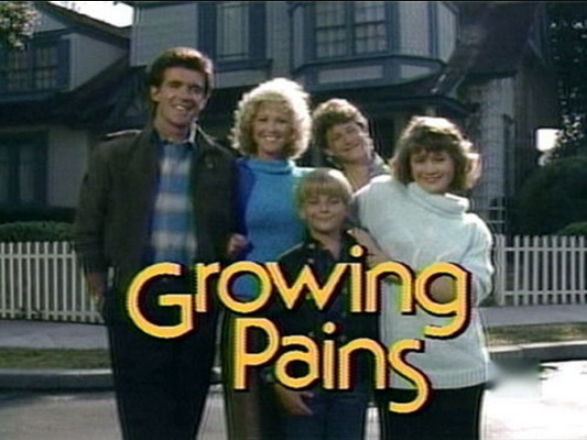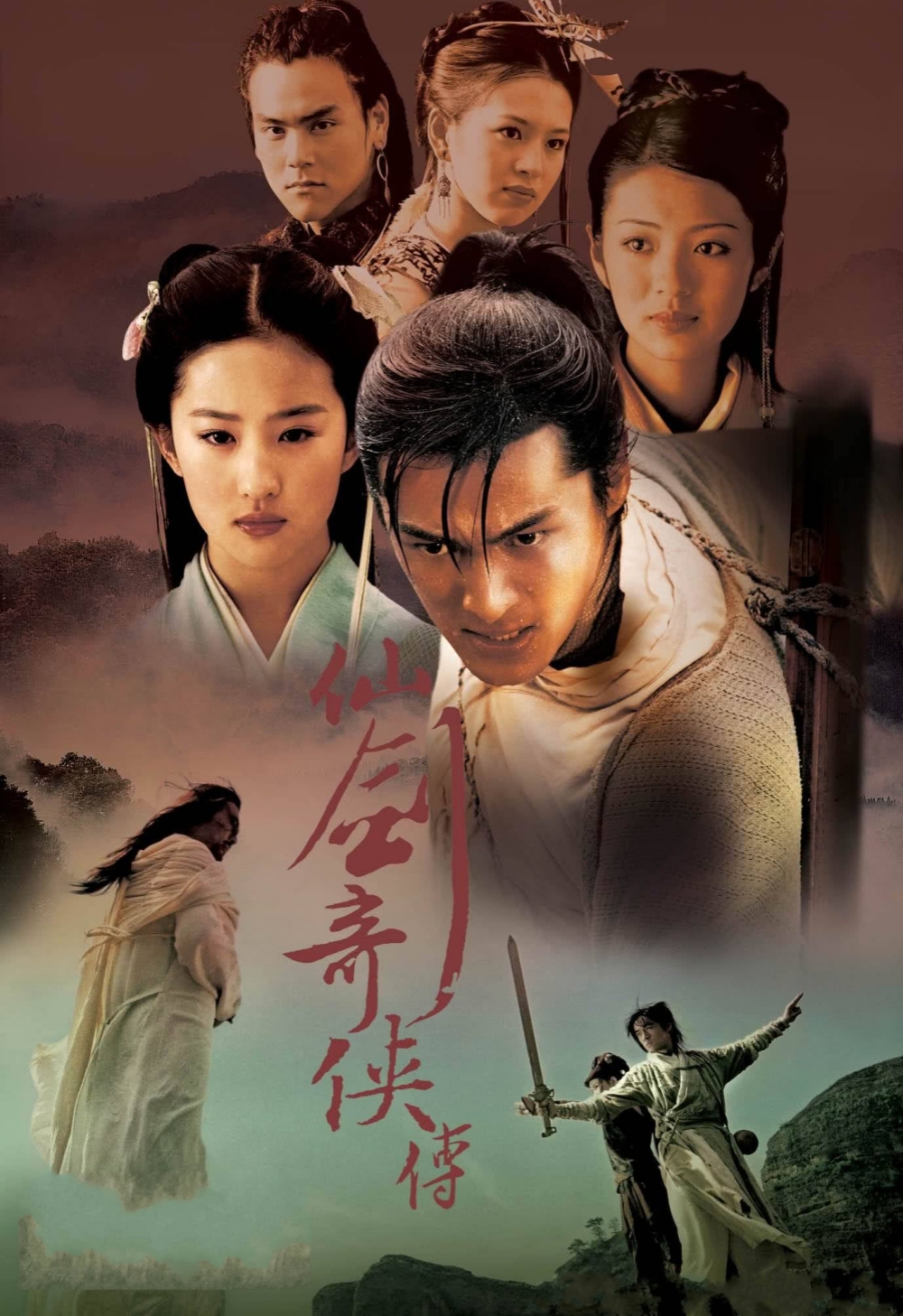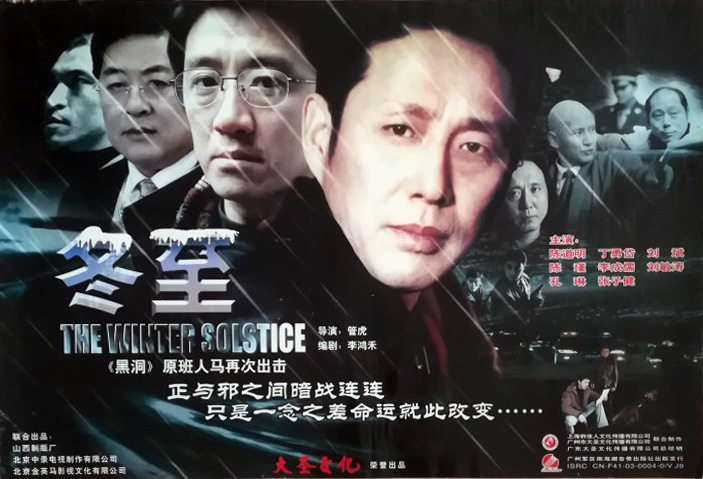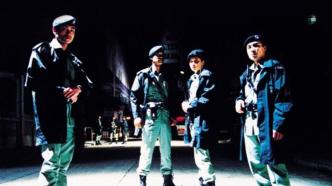
Editor's note: This is a nostalgic theater.
"PTU" is a film created by director Johnnie To and the main production team of Galaxy Image Company, which premiered in Hong Kong in April 2003. PTU, the abbreviation of Police Tactical Unit, commonly known as blue hat, can be roughly understood as a security police officer responsible for street patrol.
To Qifeng and Wei Jiahui are the main directors, together with a group of production staff of Galaxy Image Company, they are the most active backbone of Hong Kong films around 2000. In 1999, Du Sir directed the sketch film "Gunfire", which not only won him the Best Director Award at the Hong Kong Film Awards, but also gained a good reputation and became a masterpiece of his creative career. Afterwards, out of commercial considerations, Yinhe Image successively launched comedies and love works such as "Lonely Man and Widow", "Slimming Men and Women", "Zhong Wuyan", "I See a Ghost in My Left Eye", although the quality and box office results are good, but obviously not. Du Sir's favorite way of creation. Almost 4 years after "Gunfire", this "PTU" re-presents the most distinctive artistic features of Director Johnnie To, and won him another Best Director Award at the Hong Kong Film Awards. The best film of the same year was also "Big Guy" directed by him (the mainland name is "Big Man with Great Wisdom"), which can be described as a year of fruitful creative achievements.
After "PTU" received great acclaim, in roughly 2008 and 2009, five sequels were released, continuing to describe the story of the blue hat. Although the main actors are still Ren Dahua and others, the director is no longer To Qifeng, and the production and film effects have become a popular way of TV movies, so the quality is not much related to the original.
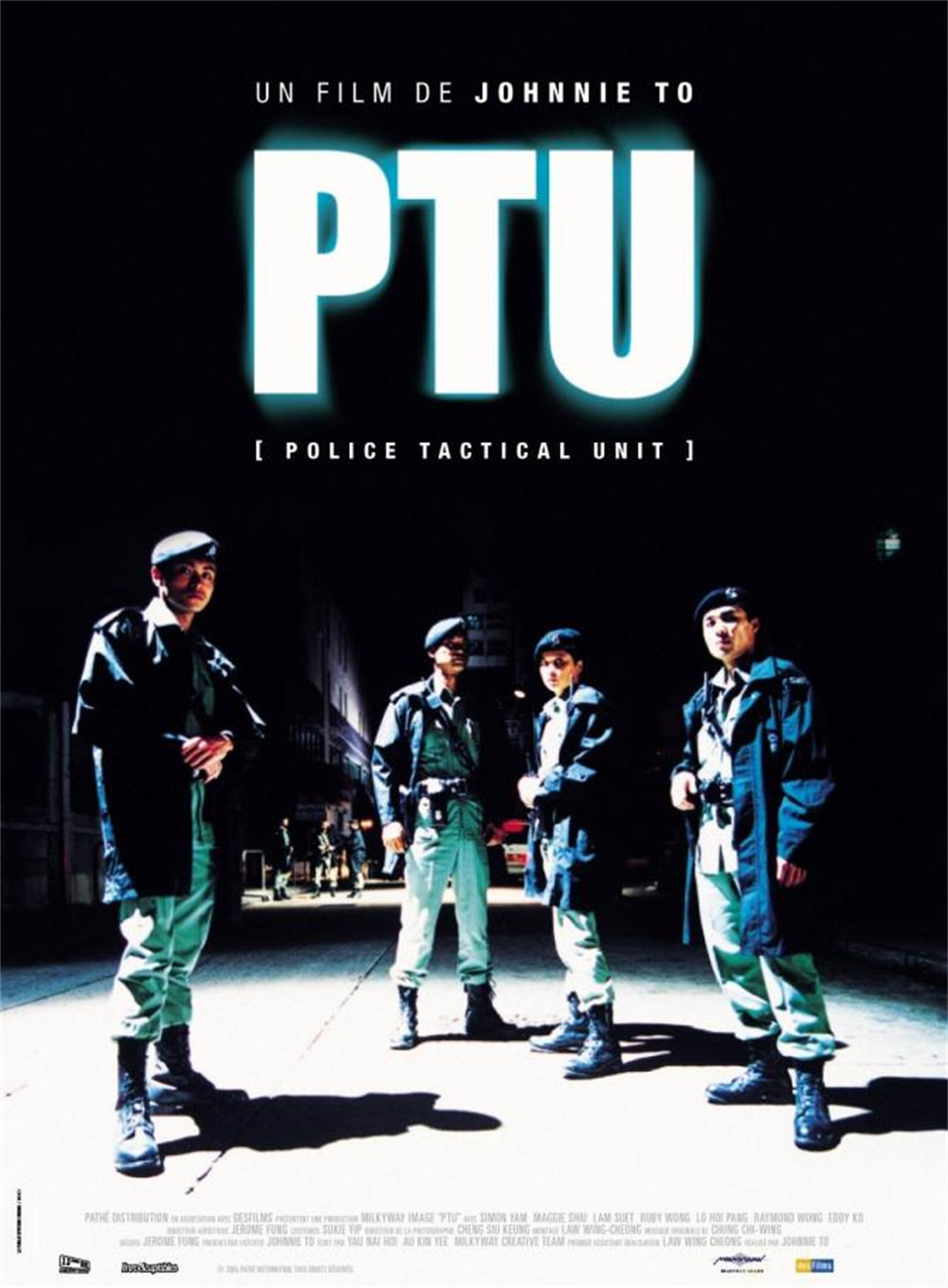
"PTU" Poster
The plot of the film all took place in one night, which is quite compact. It describes the story of Fei Sha (played by Lin Xue), the leader of the Anti-Mafia Team, who accidentally lost his gun because of being attacked by gangsters, and asked the PTU team leader He Wenzhan (played by Ren Dahua) to find the gun together. Perhaps in terms of creative origin, the film was inspired by the 2001 Hong Kong policeman Leung Shing-en who was robbed and shot. This social event, which was quite a sensation at the time, was only discovered five years later. It was another policeman Xu Bugao who planned to murder his colleagues. In addition to the series of cases he committed later, it was commonly known as the "Magic Police Case". There are also many allusions to this case in the films "Detective" and "Detective War" created by Galaxy Image in the future.
In 2003, the magic police had not yet appeared, and the public only knew "throwing guns and attacking the police". "Looking for a Gun" is a very interesting creative theme. Du Sir's idol Akira Kurosawa had filmed "Wild Dog" about a policeman who threw a gun as early as 1949, and "Looking for a Gun" was also the debut of mainland director Lu Chuan. For a movie story, a missing "gun" is extremely suspenseful, and it will always appear in the end. Whether it has killed someone or who it has killed is a kind of suspense, representing the possibility of potential violence. At the same time, the police As the protagonist, he must also bear the charge of serious dereliction of duty and continue to work hard to perform his duties. These internal plot lines immediately constitute a strong sense of conflict in the film's drama, and it is a realistic and lively story frame.
A major innovation of "PTU" is to develop a single-player play into a group play. In addition to the policeman who threw the gun, a team of blue hats who helped him find the gun became the main characters of the plot. At the same time, there was a story about the gangster leader Mawei being killed by a rival gang, and the gangster seeking revenge for his son. In addition, there is a major case of bank robbers trying to smuggle away, and a small case of a child destroying a car on the street to steal money. These stories of parallel development constitute a group of living beings in the city in the middle of the night, unfolding a social scene full of confrontation and tension without rush or delay.
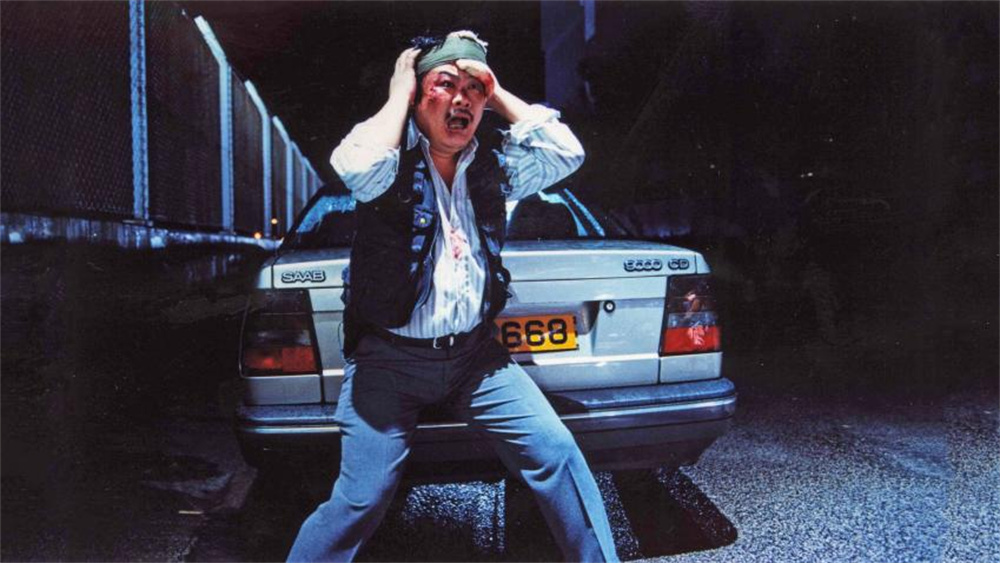
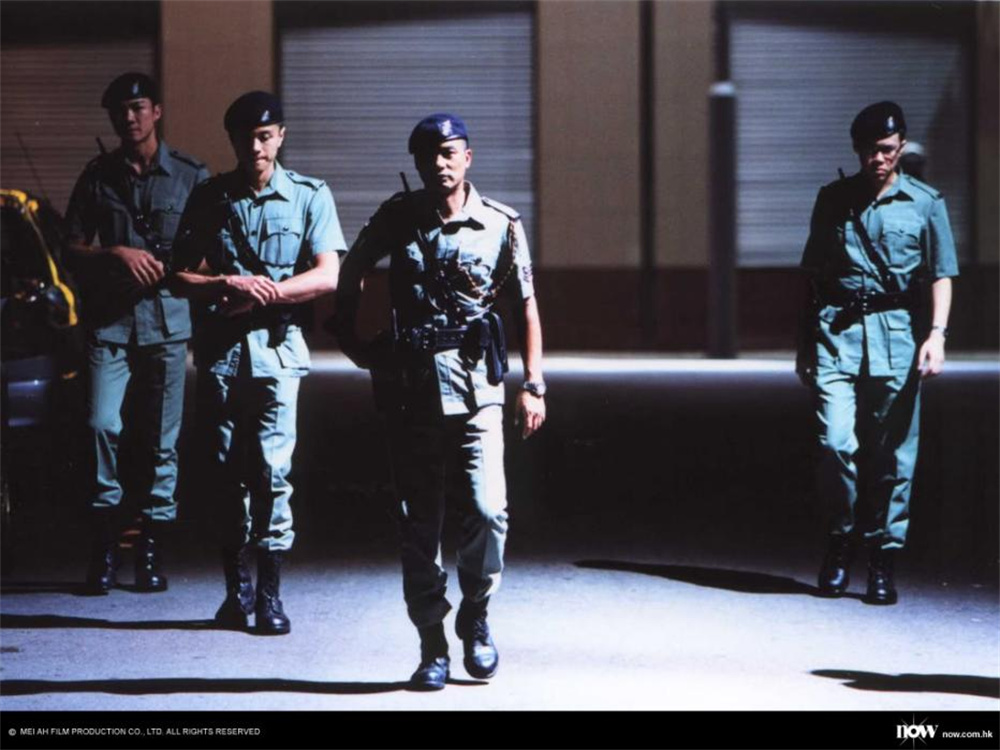
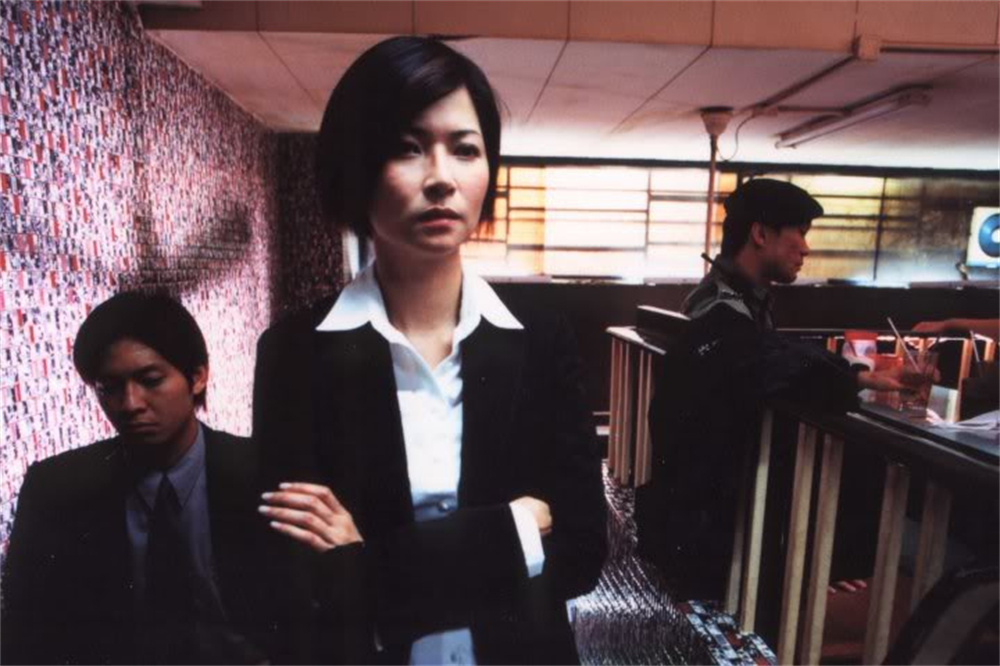
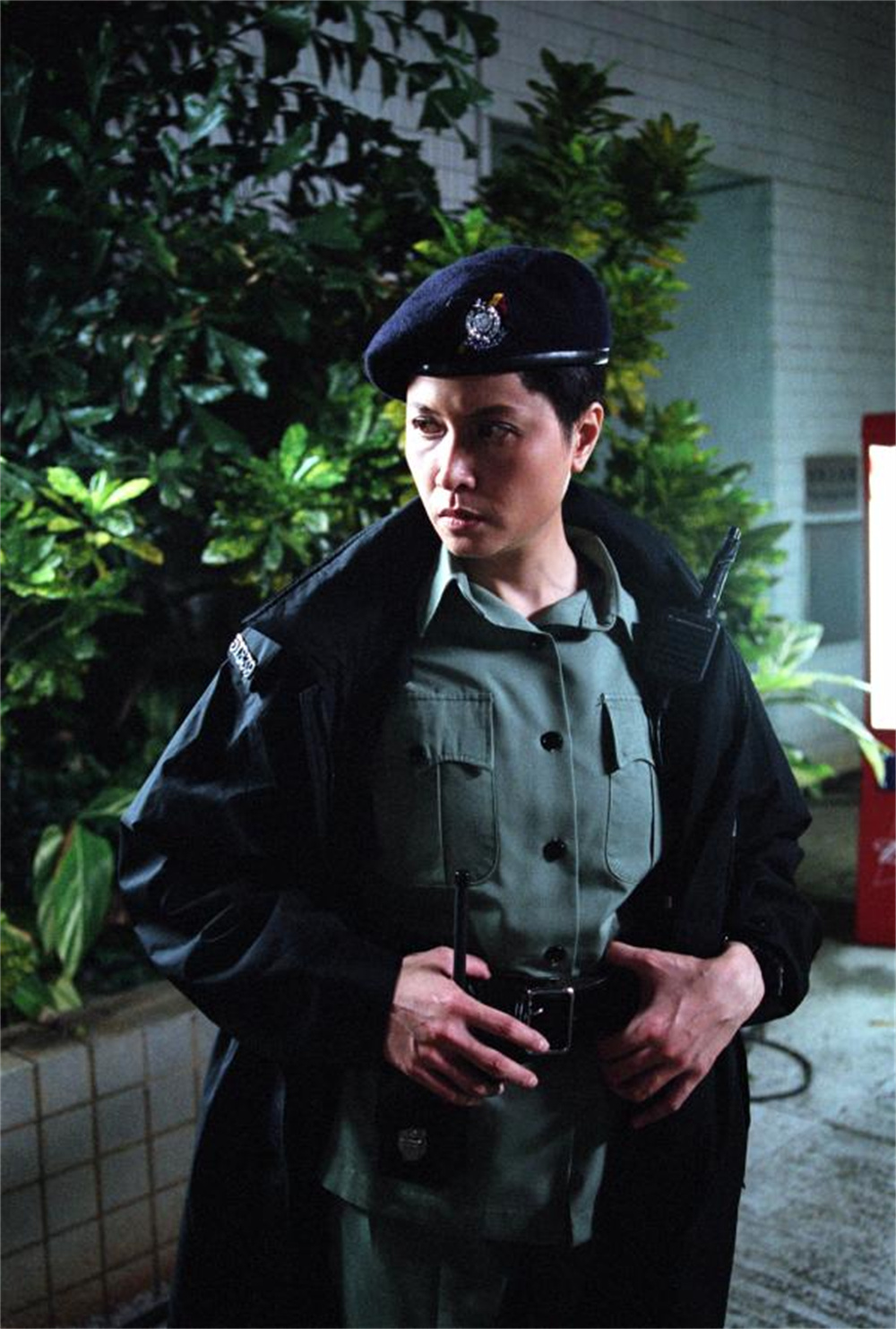
From the stills of different characters, it can be seen that the characters have their own concise and quiet temperament, and they all belong to the "not easy to mess with" type. Except of course Lin Xue who played Fei Sha, he has a kind of comedic feature.
Du Sir started out shooting melodramas for TVB in his early years, such as the classic 83 version of "The Legend of the Condor Heroes". In his later career as a director, he made some comedies, as well as some costume and fantasy action films, with various styles. Of course, his favorite is the drama film with male confrontation as the main plot, which is similar to the creative style of director Akira Kurosawa in his early years. . By the time of "Gunfire", Du Sir's artistic style was already very mature. He took the seemingly conventional gangster stories in Hong Kong movies into a completely different taste. Many male protagonists have their own characteristics, and there are many ordinary and humorous characters. Composition, and added special artistic treatment to the modeling and gun battle. And "PTU" is the same as "Gunfire", which is also very characteristic in these aspects, but the overall style is too old-fashioned and submerged, so the Douban score of the former is slightly lower.
Although the plot of the film is multi-line and full of suspense and surprises, what is more important is the overall style of the director, who has brought these sudden changes in the plot to the extreme and will not be bloody. As a police and gangster film, there are many plots similar to this film, but the characters in the film are obviously novel compared to other films. There are many characters on the scene, the design is ingenious, and many characters have impressive actions, all of which reflect the director's superb artistic skills.
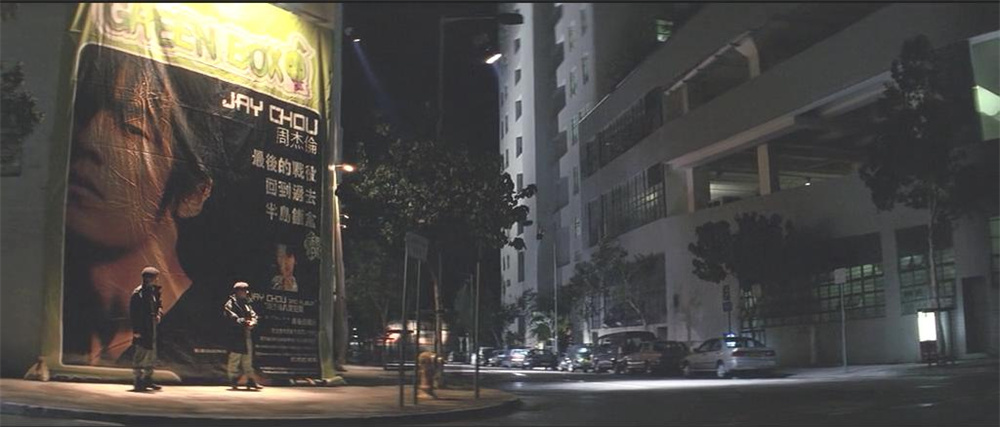
The urban atmosphere in the dark night, the huge Jay Chou poster, where the characters stand, there is a unique style.
As far as the police are concerned, although it is a story of PTU in name, the logic of the characters' behavior cannot really be viewed as a policeman. Whether it is the two teams of PTU members and captains with different personalities, the group portraits of the anti-mafia detectives, or the female team leader of the serious crime team who looks like a villain, the police in these different departments have their own flaws. Either they are free and undisciplined, or they violate the rules and regulations, or they are too aggressive and lack sympathy for their colleagues. Rather than saying that these characters are "police officers", it would be more accurate to understand that they are the gangsters who have their own ghosts in the previous Du Sir film, or the department staff who fight openly and secretly in a large company in the comedy.
The various practices of these police officers, such as obtaining information from street informants, are all straight to hit the ground for a while without saying a word. Whether this is in line with the real practice of police officers in reality is actually not important. The plot is about how every character with distinct personality and sharp stand collides with each other due to different ideas. They have to fight but also cooperate, and they have to fight but not tear themselves apart. This is a characteristic of a typical male drama. The conflicts are bang bang, and the literary drama is very enjoyable to watch.
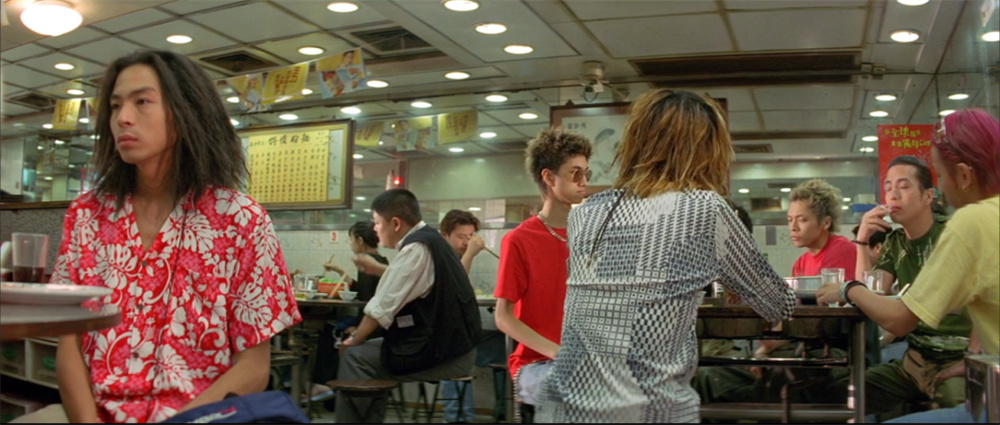
In the opening scene of grabbing seats at the hot pot restaurant, the seemingly ordinary composition, in fact, the little brother on the far left, the policeman in the background in the middle, and the gangster brother smoking on the far right, everyone's fighting positions have constituted the most Nice "play".
For example, in the opening scene where the gangster brother Mawei was killed, he entered slowly at the beginning. It's nothing more than the boss of the gangster and his younger brother domineering, forcing other customers to change seats in the hot pot restaurant, and grab a good seat for himself. Similarly, the appearance of Fei Sha, the captain of the anti-mafia team, also embarrasses the parking boy for no reason when parking, showing his status. And when he entered the hot pot restaurant, he threatened the boss of the gangster to change his seat, proving that he was the most powerful one. These men fight openly and secretly, with very few basic lines, and the characters don't need to be very exaggerated. They often look at each other, and when they sit there, others will immediately understand, bow their heads and walk away, and the high and low will be immediately distinguished. The very strong conflict of characters is subtly displayed in a silent way.
But the so-called hot pot restaurant's seat issue is not important at all. Although there is a conflict, it is not a sudden change in the plot. The real climax of this scene is that the little brother who gave up his seat, who seemed weak at first, took advantage of the big gangster's surprise and stabbed him for revenge. The police officers of the anti-mafia group were also designed by the gangsters, the car was splashed with paint, and the gun was lost. The fight ended in sudden violence. But the gangsters, who seem to be revenge against the police, ran into their seriously injured elder brother on their way back, and left without recognizing him. Those who win on the surface actually lose; those who think they have won face lose their lives in the end. The organization of these plots is carried out in a way full of black humor, which not only surprises the audience, but also has a sense of absurdity.
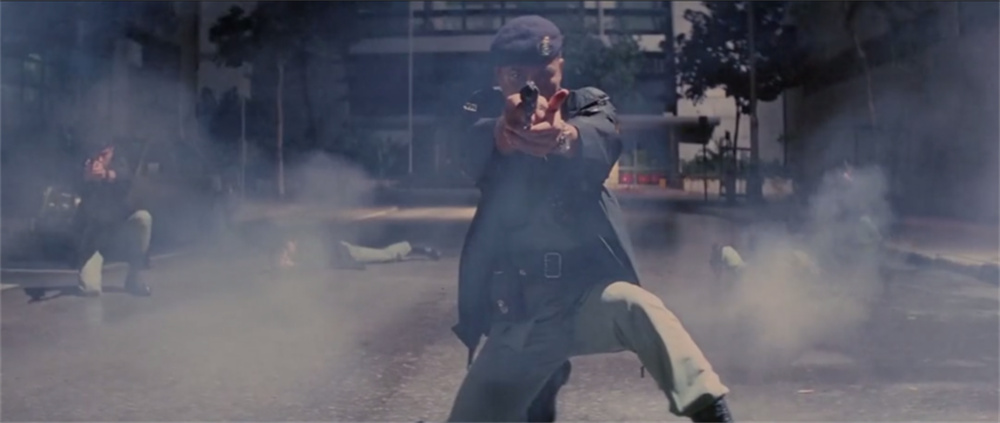
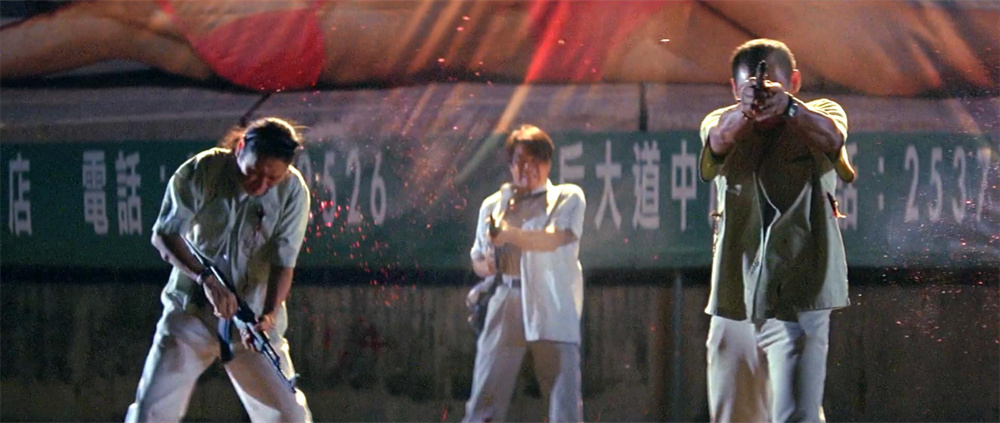
Who would have thought that everyone would find money and enemies all night, and end up shooting duels with unexpected gangsters on the street? The direction of the story surprised the audience very much, but in the end everything was resolved.
On this night, the men are advancing their missions in their own powerful ways, the policeman who is trying to find a gun, the PTU captain who takes responsibility for his colleagues, the gangster who is eager to avenge his son, and other characters, including two The female characters in the police force behave in a more masculine way. None of them are weak, and they have skills in handling things, but none of them can accurately grasp the development of the situation. Finally, in a street encounter that surprised everyone, everyone took out their guns and fought randomly. Unexpectedly, the protagonists got a relatively perfect ending in the sense of the plot.
This kind of story theme and plot development is a treatment that Du Sir has always preferred. Like the master Akira Kurosawa, there are often no heroes who can really win in the film. Although the men show their ultimate charm in the story, sometimes they lose due to uncontrollable factors. To put it mildly, this is a well-written story, and the ending is beyond the audience's guess; to put it too broadly, this is a kind of compassionate perspective, which shows that the characters face the teasing of fate, and always strive to fight with dignity , even if he lost in the end.
These scenes, not only the unexpected plots, but also the attitudes of the characters in each scene of the plot, are quite chewy. Not only the lines and performances of the characters are good-looking, but also the light and shadow modeling and other shaping effects on the characters will make them appear full of personality.
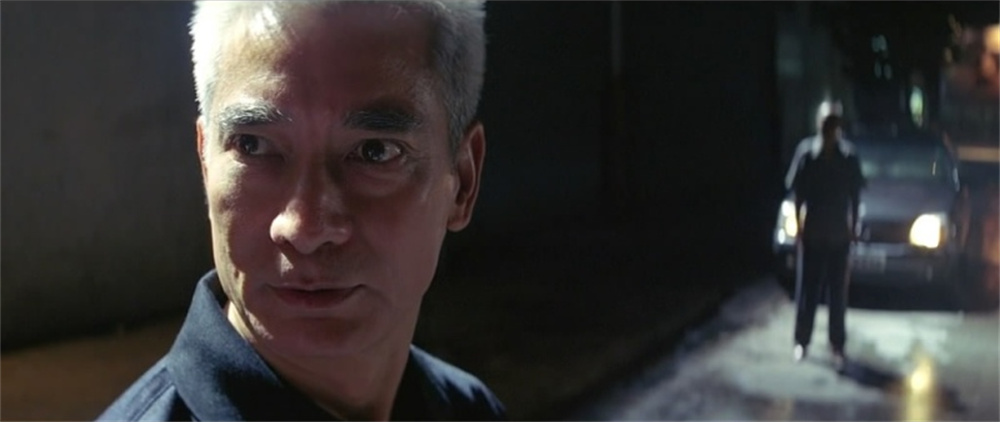
The gangsters and enemies who avenged their son were all old men in their sixties and seventies. They chose to fight with guns in a one-on-one warrior battle, which was also very manly.
Although it is already a movie 20 years ago, it seems not only not outdated today, but also has a very solid movie texture. This kind of texture is because the characters don’t have many lines, and they often complete their performances with actions, which has a charm of charm. At the same time, the light and shadow atmosphere created at night makes people feel quite artistic, rather than too popular for TV dramas. narrative. Today, such treatment may still be seen in the films of a few directors such as Cheng Er, but most of the films conform to the market and adopt relatively popular and straightforward storytelling methods.
So watching "PTU" again, not only has a charm that transcends the times, but even the style is very fresh, which is more flavorful than most films today.
